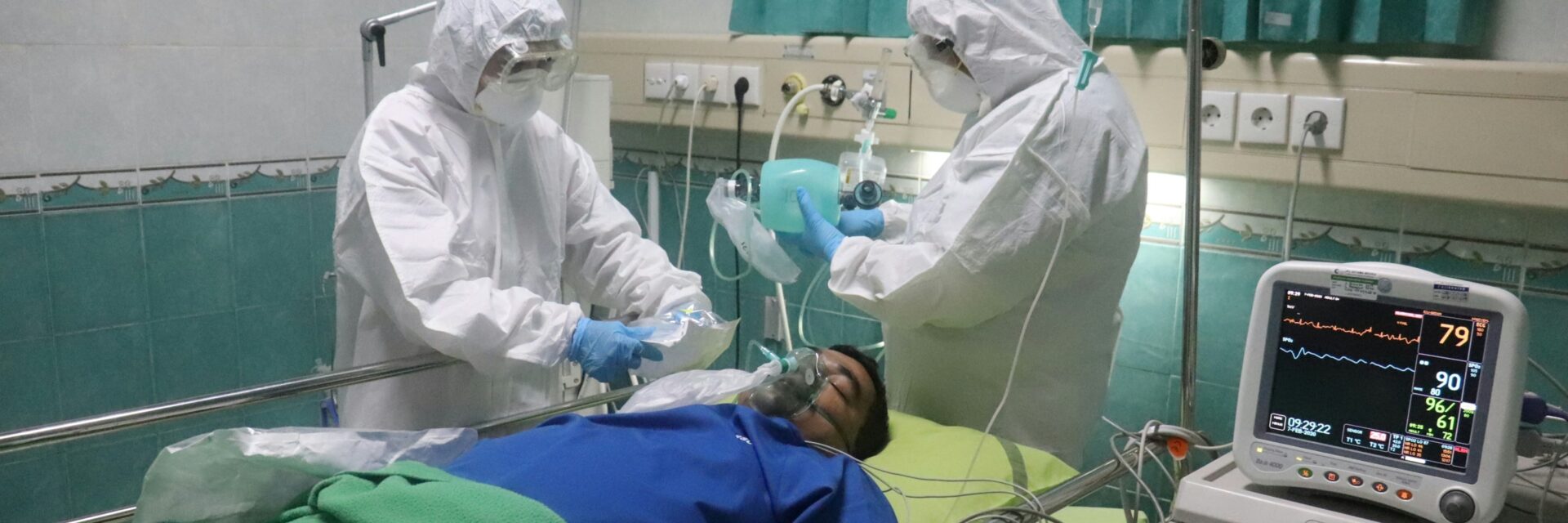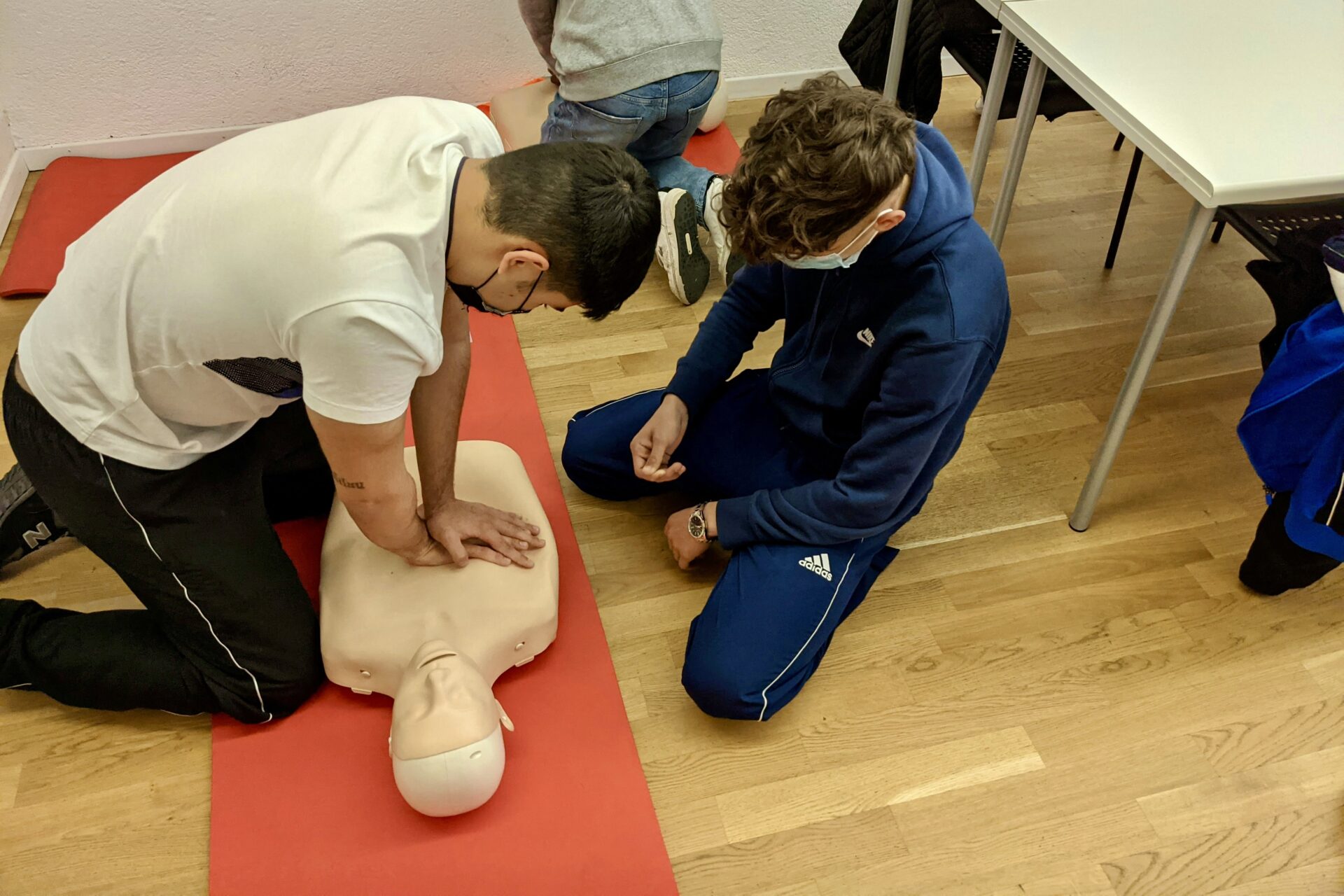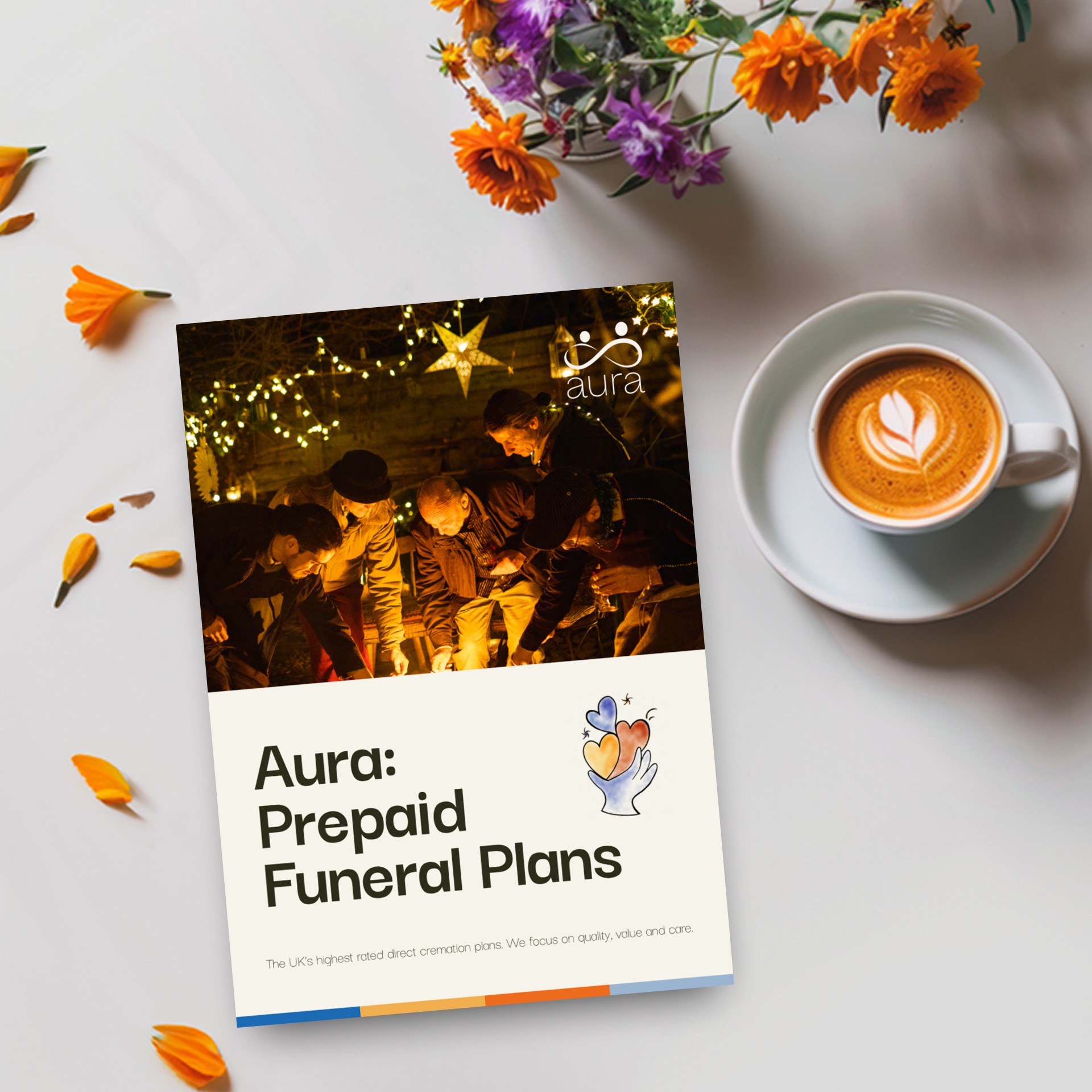
Two Together: Save £100!
Save £100 when you purchase two funeral plans together. Call us for more details.

Two Together: Save £100!
Save £100 when you purchase two funeral plans together. Call us for more details.

Whilst some elements of end-of-life planning relate to more causal matters, such as what colour coordination to choose for our funeral, there are others with more gravity. One such example of a serious end-of-life decision concerns a Do Not Resuscitate (DNR) Order. In this article, we will explain what you need to know about DNR, helping you to understand the issue, and whether there’s anything you may need to start thinking about.
If you’re reading this article, there’s a chance that you yourself, or a loved one, is going through a tough time and may be facing this decision imminently for health reasons. Naturally, you may also simply be planning ahead for your own future. Whatever your reason for reading this article, if you’re in a difficult moment, we’d just like to acknowledge that, and hope that we can offer some comfort during this time.
Key takeaways:

In asking ourselves what ‘Do Not Resuscitate’ means, we also have to consider whether we would always want to be resuscitated, and what a DNR order is.
Quite simply “Do Not Resuscitate” means exactly that: it’s a declaration to medical personnel that we don’t want to be resuscitated in a situation where we stop breathing and become unresponsive. We make our intentions on this fact clear by issuing a Do Not Resuscitate Order ahead of time, when we are still in a state of consciousness and mental capacity. It is sometimes also referred to as a DNAR (Do Not Attempt Resuscitation) or a DNACPR (Do Not Attempt Cardiopulmonary Resuscitation), but they all refer to the same thing.
We can make an Order like this on its own, or as part of an Advance Directive, which is a more general health declaration (sometimes called a Living Will). People can make such preparations to specify their health preferences in a whole range of different circumstances, in case they should become unresponsive, unconscious, or lose their mental capacity. It will then allow medical staff to take our wishes into account when deciding how to best care for us. Making health decisions in advance, whether through a DNR or a more complete end-of-life planning guide, can be a highly effective way of preserving our autonomy and our will.
It might seem strange to many of us that we would even want to issue a Do Not Resuscitate Order … we ask ourselves, ‘why wouldn’t we want to be resuscitated?’ But the reality is, the effectiveness and helpfulness of CPR is more nuanced than we might think. In cases where a young, fit, and healthy person has suffered some sort of health crisis or sudden physical injury which stops their breathing and causes them to lose consciousness, and they are resuscitated as soon as possible after breathing loss, then the effects are largely positive. The resuscitation allows them to regain consciousness, and to keep oxygen pumping in their bloodstream. Any injuries that they may have suffered during resuscitation, such as broken bones and bruising, should heal without too much trouble.
But, in cases where the person requiring resuscitation is older, possessing a frailer or an ill body, the act of resuscitation can sometimes be considered to do more harm than good. Apart from the fact that CPR may not restart someone’s heart or return them to consciousness, unless it does so quickly, it could return the person to a worse condition than they were in before. If, for instance, many minutes have passed since the loss of consciousness and their resuscitation, their brain may have been starved of oxygen for too long, and so they may suffer brain damage as a result. This may thenlead to a severe reduction in quality of life, as well as to a brain-death and a dependency on a ventilator.
Add to this the possibility of broken bones, bruising, and internal bleeding, it becomes easier to see how the question can become complicated, as resuscitation may not always be considered to be in our best interests. According to the NHS, CPR successfully restarts the heart or breathing of its subject 10-20% of the time. It may also be contrary to our beliefs on death and funerals in religion. A DNR Order therefore gives us the chance to outline our resuscitation wishes in advance, and to protect the sanctity of our beliefs.
DNR Orders have a basis in UK law, and there are guidelines provided by the NHS too.
Your wish to preemptively refuse resuscitation as a form of treatment could be legally binding as long as it adheres to certain criteria. In order for it to have the force of law, it needs to be part of what’s called an Advanced Decision to Refuse Treatment (ADRT). This is a document that explains specifically in what situations you’d want to refuse resuscitation as a form of treatment. The legal foundations for this kind of preemptive, legally binding declaration are the Human Rights Act 1998 and the Mental Capacity Act 2005, in England and Wales.
Whilst not to be resuscitated is a decision that we would normally make for ourselves, it can also be made on our behalf by medical professionals, in cases where we are deemed to have lost the mental capacity to decide for ourselves, and where the medical opinion is that resuscitation would not be in our best interests. It could also be made by a loved one or friend to whom we’ve given Power of Attorney over our affairs, whether generally, or just for medical purposes. Having third-parties making decisions of this nature for us, whether with or without our preemptive consent, is part of the reality of facing dementia and end of life, or other similar situations.
None of us has the right to demand medical treatment – a doctor or medical professional needs to feel that the treatment is in your own best interests and that its likely benefits outweigh the likely risks. In most cases, we need to consent actively to medical treatment in order to legally receive it. Naturally, there are times when we may be treated without our consent, and, to be compliant with the law and medical ethics, such cases need to be in line with the Mental Capacity Act and other legislation. NHS policy on DNR orders aims to account for this delicate balancing act between our rights and our needs.
Unless you have issued an ADRT, a doctor may still opt to resuscitate you if they think it is in your best interests. They may also decide in advance, even if you disagree, to add a ‘Do Not Resuscitate’ Order to your medical file. They may make this decision if they feel that, in your case, it would not be in your best interests, for instance if you’ve been admitted to a hospice or hospital with a terminal illness. The good news is that all DNR Forms are standardised across the NHS, meaning that staff will always know what to do with them.
Doctors and patients can talk together to come up with a plan for how they should be cared for should there be an emergency requiring a response. They will follow the ReSPECT (Recommended Summary Plan for Emergency Care and Treatment) guidelines in order to make sure that the patient and the doctor reach a shared understanding of the patient’s health, and of their intentions for treatment. Sometimes, of course, people don’t want to have a conversation about such a grave topic at all, in which case a friend, family member, or even a good death doula can stand in.
In order to make sure that your wishes are recorded regarding resuscitation, you will need to find a way of starting a conversation about this with the relevant people, and you will need to fill in some paperwork.
If you’re in the position of thinking in the long-term about this, you may want to explore the possibility with your doctor or GP. They will be able to give you their view on whether your thinking is on the right lines, and they will be able to get you started with the paperwork. They’ll also be able to make sure that your wishes are officially recorded on your medical file.
Whilst it can be difficult to face the idea of talking about death and dying, especially with our families, it can also be very important, and rewarding. Making sure that they know and understand your wishes gives them the time to come to terms with things if they don’t initially support your view. It will also give them the chance to assist and support you with practical matters, if necessary.
Again, DNR forms are standardised across the NHS, so your doctor will be able to help you complete them with ease; you will only be able to get the form through your doctor. You will also need to sign it, in order to signify officially that it is your will. Please remember that it won’t be legally binding unless it is included as part of an ADRT.
There are a range of different people who can request a DNR for one patient: the patient themselves if they have capacity; family and those with caregiver roles; and healthcare professionals.
If we would like to ensure that a Do Not Resuscitate Order is added to our medical records, we are capable of requesting this ourselves, if we have mental capacity. That is to say, if we are currently of sound mind and capable of deciding the matter for ourselves.
In this case, we would simply discuss the matter with our GP, or the medical professionals in whose care we currently find ourselves. Naturally, in some cases, our health and situation can change for the better or worse, so we may revisit our DNR in this case.
In situations where we do not have mental capacity, a Court of Protection can grant our family members emergency powers to decide our health matters. This could include whether or not to issue a DNR Order. We may also decide to grant Power(s) of Attorney to one or more trusted loved ones for this purpose, in advance of a time when we may lose our mental capacity.
In these matters, appointed third-parties, in conjunction with medical personnel, will try to arrive at the same decision that we would have made had we been able.
Even in cases where the patient themselves disagrees, a doctor can still issue a DNR Order if they feel that it is not in our best interests, or if we would not benefit from resuscitation. They will make this decision on the basis of their own assessment of our circumstances (age, physical health, and active or terminal health-conditions impeding our chances of a successful outcome).
A doctor is normally required to inform us if they have made this decision for us, except in cases where they think it would cause us psychological harm. Yet, in cases where we are kept in the loop, we should be given the chance to hear from them what their reasons are. You also have the right to request a second opinion and a review.
They can also make this decision for us if we have lost our mental capacity, and if they think it would not be in our best interests. But even in those cases, should we have left no indication in place of our preferences, the doctor needs to seek verification that this would have been accepted by our next of kin. In cases where there is no one appropriate to ask from our life about this decision, then the doctor should ask an independent mental capacity advocate to represent you in the decision-making process.

It’s important to keep the care around DNR Orders from health professionals person-centred. This can be done by involving the patient’s preferences, and by considering the role of family and caregiver support.
One of the main reasons that it’s important to start a conversation about death with friends, family, and medical professionals, is that it gives everyone a chance to ask and answer important questions before it’s too late. By discussing the subject of death, and perhaps the impending nature of your own one with those you love, you are giving yourself a good chance to have your care preferences heard and understood by many people – people who might have to step in and make decisions about your health when you can no longer.
By integrating person-centred thinking into the care process, medical staff can make it as respectful and dignified as possible, helping to give effect to your wishes and personality. Your preferences on matters like DNR Orders can be regularly revisited as your views and health circumstances change, so long as conversation lines are kept open.
Aura also recognises the worth of person-centred care, as we aim to harness it when supporting the families who’ve entrusted their funeral arrangements to us. Aura offers its top-rated funeral services to those in need now, and those planning ahead for the future. In each case, it’s our industry-leading Aura Angel team who will be there to oversee the arrangements. They will work with you or your family to put everything into effect, exactly as specified, lending a hand with admin, logistical matters, and even lending an ear if you simply want to chat about what you’re feeling.
Should we be a patient, our family and friends, as well as our caregivers, can share valuable information with doctors about our personal, health, and care preferences. Our loved ones, for instance, can explain the little things that we might have forgotten to mention like favourite radio stations, or whether we like to sleep with the light on.
Likewise, healthcare teams can support our loved ones, who are likely to be in a heightened emotional state if we are nearing death and we have lost our capacity to communicate, or our autonomy. They will be able to compassionately communicate a doctor’s reasoning to them, should they have decided to add a DNR Order to our file which they don’t agree with. Clear, concise and compassionate language from medical staff will help to reduce the emotional strain.
There are some fairly common concerns which we have, or questions we naturally want to ask, about DNR orders. Here are some examples.
Absolutely not. If you or your doctor issue a DNR Order, it only applies to resuscitation. Indeed, when you make it legally binding by including it in an ADRT, even then it will only apply in the circumstances specified.
When a DNR Order is in place, all other treatment will go ahead as normal, and a doctor will care for your health exactly as they would if it were not. That means that pain relief will still be administered, and all other treatment for current and future illnesses and infections will be administered as usual.
Yes, a DNR Order can be rescinded or updated at any time to take account of changes in circumstances or preference. If you would like to review yours at any time, make sure to discuss the matter with your family, your carer, or your doctor as you see fit.
The best way to make sure that your will is respected in emergencies is to let hospitals and paramedics know as soon as possible that there is a DNR Order in place. In any case, doctors should be aware of this, as it will be on your file if it has been completed.
To make extra sure, you could keep a copy of the DNR Order somewhere visible at home, and keep it near your front door, or in a clearly marked medical folder.
Here are some common FAQs about DNR Orders.
A DNR is not legally binding unless it is included as part of an ADRT (Advance Directive to Refuse Treatment), as this is a legally binding document. Otherwise, whilst it is an important and influential document, a DNR Order doesn’t have the force of law in the same way that a will does. It means that if a doctor decides to resuscitate a patient with a DNR in place, they could be sued for not respecting the patient’s wishes.
An Advance Directive is a much broader statement, sometimes called a ‘Living Will’, where you can specify all kinds of things about your healthcare preferences in advance, from the trivial to the grave. The idea of it is to provide healthcare professionals with a guide that will let them understand your wishes, should you later lose mental capacity to decide matters for yourself. It can include an ADRT, which is a specific statement on when you want to refuse certain kinds of treatment, like resuscitation or a blood transfusion. An ADTR is legally binding.
A DNR Order is a much more specific form you fill in with your doctor in which you specify that you do not want to be resuscitated should the need arise. In some cases, a doctor can also issue one about you, against your wishes, should they deem it not to be in your best interests. Naturally, as far as possible, they will try to take your wishes into account. If issued by you, the document is not directly legally binding, but should a doctor flout it, they may face private legal trouble.
If in a care home, for instance, then you or your family should communicate immediately with the medical personnel on site so that they know what to do in a relevant situation. If at your own home, then try to display a copy of your DNR Order in a prominent place. You can even wear a DNR bracelet or medical jewellery, making absolutely sure you are doing as much as you can to display your wishes, should the situation ever arise where someone unaware of your situation feels they need to attempt to resuscitate you.
We hope you have found this article on Do Not Resuscitate (DNR) Orders useful and informative. It’s a complicated subject freighted with emotional significance, so we know that it can be difficult to get to grips with it.
If alongside your health priorities, like DNR, you feel you would like to get your funeral preferences sorted out (or like you may soon need to start handling those of a loved one), then Aura is here to help you. Our direct cremation services are available to those requiring a funeral imminently, as well as those thinking about their own futures via a prepaid funeral plan. Aura is the top-rated national ‘Cremation Services’ provider on Trustpilot, with a score of 4.9/5 stars. If you feel that we can help you to make arrangements, then why not give us a call today? Our Aura Angel team will certainly be able to help.

Our brochure includes all the details you need surrounding our prepaid direct cremation funeral plans.
Get your free brochure sent by email or First Class post by clicking on the link below.